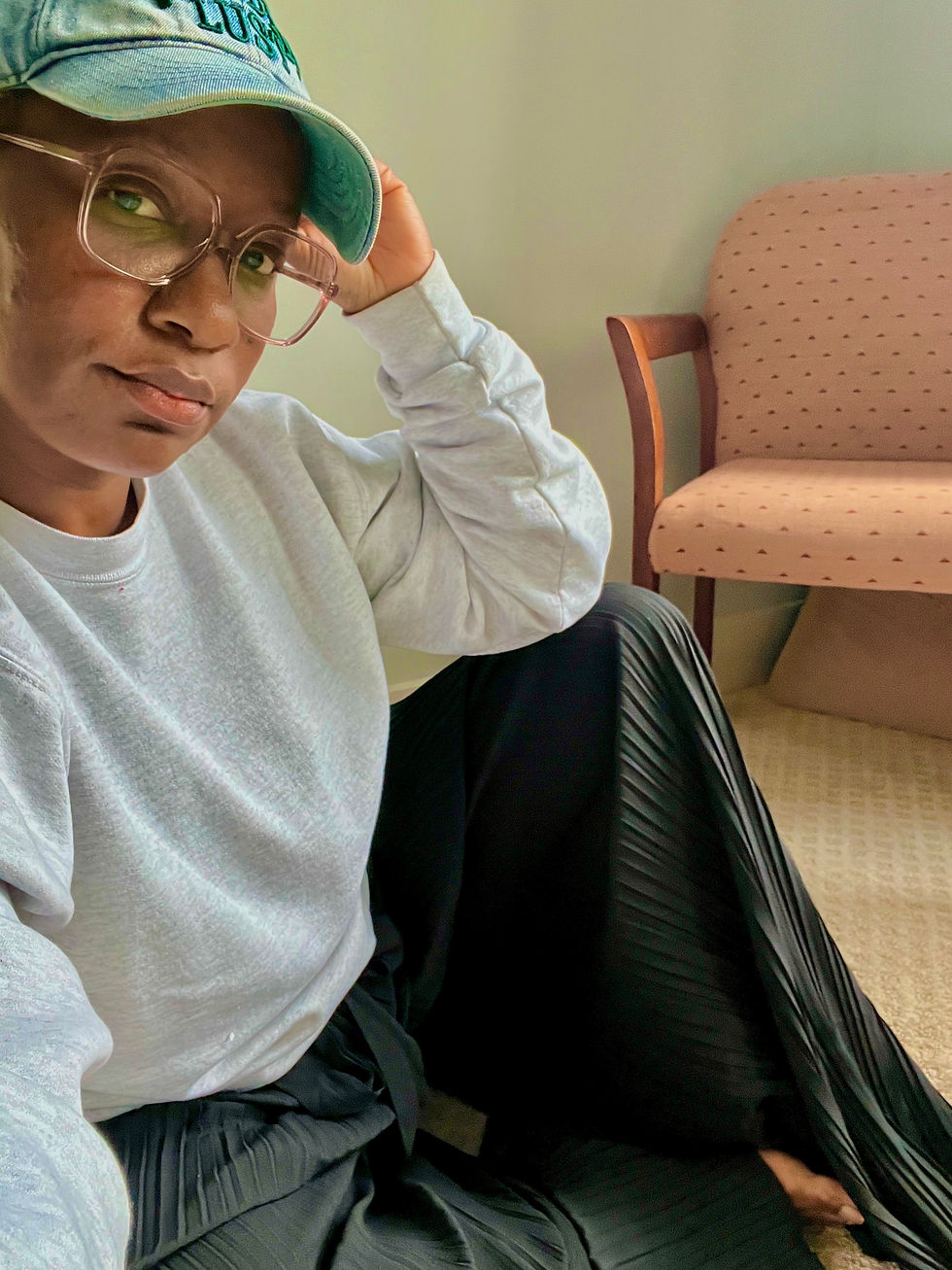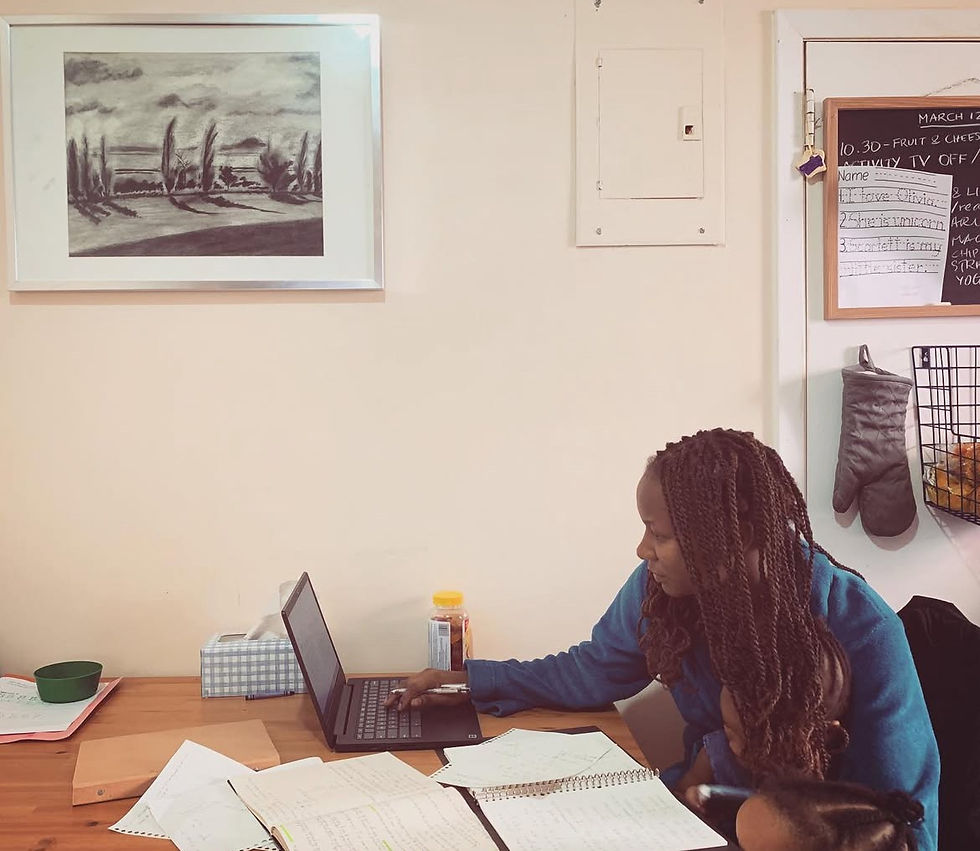Going Back to School in Your 40s: Why Ageism Hurts Us All
- Renata Poleon

- Aug 4, 2025
- 3 min read
Updated: Dec 18, 2025

What do Viola Davis, Vera Wang, John Warnock, Julia Child, Martha Stewart and so many others have in common? They gained much of their success later in life. American women have their highest median earning years between the ages of 35 and 64, yet there seems to be a race to have it all by 30, a concept that has infiltrated the minds of so of many of us. In spite of this pressure, I am happy to see the resistance that is happening around adults being proud to start new careers or build on their existing skills in their 40s and later.
Deciding to go back to school in your 40s isn’t a decision that happens overnight. It takes courage, planning, and a fair bit of self-reflection. But perhaps the most surprising obstacle along the way isn’t balancing family life, a career, or the coursework itself—it’s navigating the sometimes invisible, sometimes blatant barriers of ageism.
In any culture that prioritizes youth, it’s easy to feel overlooked or underestimated. But here’s the thing: this ageism doesn’t just affect the individual, it holds back our entire society from reaching its full potential. Here’s why.
The Value of Experience in Learning. One of the best things about going back to school later in life is bringing your life experience with you. Life has given you depth, wisdom, and a different lens for learning that younger students simply haven’t had the time to develop. Yet, because of ageist assumptions, those experiences can often be undervalued in educational settings, limiting how much older students feel encouraged to contribute.
My life and career experiences in Human Resources have enriched my understanding of my studies in psychology and will in my future career as a social worker. I can analyze a case study with an eye toward both interpersonal relationships and organizational structure, bringing a unique perspective to my program. But because ageism can portray “older” students as out of touch, therefore our voices may not get the attention they deserve.

Redefining “Potential” as Lifelong. One common ageist assumption is that by a certain age, you’re “done” with learning or growth. You can’t teach an old dog new tricks they say. It’s a belief that not only limits individuals but affects society at large by failing to tap into the potential that every generation has to offer. Ageism tells us that growth is a young person’s game, pushing us to think that anyone over a certain age has already reached their peak.
What if, instead, we recognized the value in lifelong learning? What if we saw every individual as a dynamic, evolving person, rather than assuming their potential has a cutoff age? My journey into social work is an example of that evolution and finding my purpose, even in the midst of responsibilities that can sometimes detour personal personal goals. My choice will have a long-lasting impact, not just on my life but on the clients I work with in the future, because some may see me as a beacon of what is possible.
Ageism as a Self-Fulfilling Prophecy. One of the most harmful effects of ageism is that it can become a self-fulfilling prophecy. When society tells us that older people can’t adapt, can’t innovate, or can’t succeed in new areas, it’s easy to internalize those messages. People may limit their goals, avoid new challenges, or feel that trying something new isn’t worth the effort because of the fear of being judged.
On the contrary, studies show that people in their 40s and beyond can be incredibly adept at learning new skills, especially those that draw on emotional intelligence, critical thinking, and complex problem-solving—all skills developed and honed over decades of life experience.
Moving Forward with Purpose
Now that I am preparing to go back to school in my 40s, I am looking forward to one of the most fulfilling experiences of my life. The mix of excitement, challenge, and growth reminded me that age is just a number and it shouldn’t dictate what you’re capable of or what dreams you can pursue. Every year, every decade, brings new perspectives and skills, making us more capable, not less.
Ageism is a barrier we need to break down. It limits not just the potential of older individuals but the richness and diversity of perspectives that society needs to thrive. So, for anyone considering a new path later in life, know that it’s possible, valuable, and worth pursuing. We can all benefit from embracing a world where age isn’t a limitation but an asset, a source of strength, and a gateway to lifelong learning.
Are you heading back to school in your 40s? Share your excitement with me.







Comments